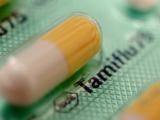Jan 13, 2010
Japan clears IV antiviral peramivir
Japan has approved peramivir, an intravenous neuraminidase inhibitor, for the treatment of adults with influenza, Shionogi announced today. Shionogi has licensed the drug from US-based BioCryst. Japan is the first country to approve peramivir, though in October the US Food and Drug Administration (FDA) granted it an emergency use authorization. Shionogi said it finished a clinical trial of the drug in children and intends to file an application for pediatric use within the next fiscal year.
http://www.shionogi.co.jp/ir_en/news/detail/e_100113.pdf
Jan 13 Shionogi press release
Germany, Serbia scale back vaccine orders
GlaxoSmithKline yesterday confirmed that the German government is trimming its H1N1 vaccine order by 30%, the Associated Press (AP) reported. Other governments are reducing their vaccine orders because they have surpluses owing to falling public demand and findings that one dose, rather than two, is enough to protect most people against the virus. In a related development, Serbia said yesterday it would stop importing vaccine and reassess its needs in February, BalkanInsight news reported.
Georgia to get donated vaccine from WHO
Public health officials in Georgia said the World Health Organization (WHO) will provide the country with 400,000 pandemic vaccine doses to immunize high-risk groups, Trend News, a central Asian news agency, reported. Groups slated to receive the first doses include pregnant women, healthcare workers, and those with weakened immunity and chronic conditions. Pandemic flu activity is starting to decline in Georgia, but officials are warning that another wave of illnesses could occur.
http://en.trend.az/news/politics/foreign/1617063.html
Jan 12 Trend News story
UK leader defends government's H1N1 response
British Health Secretary Andy Burnham defended the government's response to the H1N1 pandemic from Labour Party charges that leaders wasted money and distorted the health system's priorities over an exaggerated threat, the Press Association reported. Burnham said he would "make no apology" for taking necessary steps to protect the public. He cited the WHO's pandemic declaration and said the "exceptional spike in flu cases" in Britain last summer triggered strong public concern.
China orders more H1N1 vaccine
China has ordered more pandemic H1N1 vaccine from Sinovac Biotech Ltd., the company announced today. The order is for 8.57 million doses and brings the total bought by the government from Sinovac to 20.05 million doses, of which 10.23 million have been delivered. The order calls for the company to deliver 2.33 million doses by Mar 15 and to stockpile the rest in its own warehouse, officials said.
http://www.prnewswire.com/news-releases/sinovac-obtains-fifth-h1n1-vaccine-order-from-chinese-central-government-81311397.html
Jan 13 Sinovac press release
Mexico has fewer than half of its doses
Mexico, site of the world's first pandemic H1N1 cases, has received fewer than half of the 30 million doses of vaccine it ordered in 2009, Health Secretary Jose Angel Cordova said yesterday, according to the AP. He said Mexico has struggled to get the vaccine because it has to import it. So far the country has obtained 12 million doses, including a loan of 5 million from Canada. Cordova said the government hopes to vaccinate 24 million people by March.
http://wtop.com/?nid=105&sid=1862159
Jan 12 AP report
Many Poles think no-vaccine policy was right
Many people in Poland think their government's decision not to buy H1N1 vaccine has been vindicated by events, as the pandemic has peaked in much of Europe and several countries that stockpiled vaccine have many doses left over, according to an AP report from Warsaw. Doctors in Poland are deeply divided on the matter, with some arguing that people should have the right to be vaccinated if they want to.
http://wtop.com/?nid=383&pid=0&sid=1862363
Jan 13 AP story




















